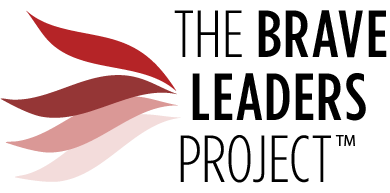What You Can Do Right Now to Improve Human Rights on a Global Scale
What if you were to discover an amazing document that set out a universally accepted set of rules for how human beings should treat one another and live together? What if most nations of the world agreed to these rules and used them to guide law-making at the global, national and even local levels? Maybe we’d see significant reductions in slavery, corruption, famine and poverty!
Such a document does exist, and has since it was officially adopted by the United Nations General Assembly in 1948. Aptly named, UThe Universal Declaration of Human RightsThe Universal Declaration of Human Rights (UDHR) has been translated into more than 500 languages. Yet, how many of us even know about it?
Shouldn’t this document be widely distributed, commonly talked about, and built into our school curricula? If it were, we’d likely see more positive action in our schools, towns, communities and workplaces. We’d ultimately have a path to creating the fair, just world we all dream about.
To help us understand a little bit more about the situation, and to give us some realistic action steps, we turned to Mary Mayenfisch-Tobin, a leading Advisor on Business and Human Rights & Education. Here’s what she shared with us.
Eleanor Roosevelt with the Universal Declaration of Human Rights, 1949. Source: Wikimedia Commons.
“It is clear the Universal Declaration of Human Rights is a set of principles that we should teach our children and base our lives on. Yet,
The UDHR is not, to my knowledge, being widely taught in schools.
Journalists do not, to my knowledge, inform the public about the rights set out in the UDHR.
While some businesses do pay attention to the UDHR, thanks to the work at the United Nations, not enough is being done and progress is much too slow.
It is also clear that the UDHR and its principles are enacted in several instruments of International Law, which compel governments, companies and individuals to protect and respect people and the planet. So why isn’t this happening?”
The answer isn’t easy. Mayenfisch-Tobin suggests a few of the “big questions” that international authorities wrestle with and that hint at the root cause of our global inaction. “Let’s start with land rights. Who does the world belong to, anyway? Then, there is the question of equal rights. Aren’t we all born free and equal with equal rights and opportunities? If so, why are we unable to share the wealth and riches of the world?”
If just thinking about these questions feels overwhelming, and you’re wondering what you – or any single person – can do about them, Mayenfisch-Tobin offers these words of encouragement: “If every person takes at least one of the actions listed below, we can make the world a better place.”
What You Can Do
If just thinking about these questions feels overwhelming, and you’re wondering what you — or any single person — can do about them, Mayenfisch-Tobin offers these words of encouragement: “If every person takes at least one of the actions listed below, we can make the world a better place.”
Put your vote where it matters. Don’t support candidates who are equivocal about human rights.
Consume responsibly. Find out about the products you buy and support only brands that have transparent supply chains.
Treat everyone with consideration. Human rights begin at home.
Educate your friends, relatives and acquaintances. Talk to them about what you are learning.
What Teachers Can Do
Mayenfisch-Tobin notes that our school teachers are in an especially good position to move the conversation forward. Here are her suggestions for teachers who wish to foster human rights awareness:
Encourage your students to read more than one source of news to get a balance in the opinions offered. Organize a debate in your school.
Organize a class visit to the United Nations.
Organize a class visit to the World Trade Organization.
Visit your local government offices. Ask them about the global Sustainable Development Goals initiated by the United Nations in 2015 and what they are doing about them.
In the end, if you are still wondering, “Whose responsibility is this?” The answer is, it’s yours, and ours. We each need to take personal responsibility for our own awareness. To further your Human Rights education, start here:
The Universal Declaration of Human Rights
International Covenant on Civil and Political Rights
International Covenant on Economic, Social and Cultural Rights
The International Bill of Human Rights
Ratification of Human Rights Treaties
Land Rights (Oxfam)
The United Nations Human Rights (by Country)
Malala Introducing the World’s Largest Lesson
The World’s Largest Lesson (Unicef)

